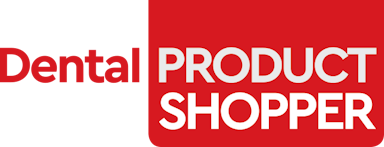 In 2019, you’d be hard-pressed to find a general dentist or specialist who’s not aware of the nation’s opioid crisis. Unfortunately, with more than 130 people in the U.S. dying each day after overdosing on opioids1, it’s likely you or someone you know has been personally impacted by this epidemic in some way. More than 90% of non-controlled substances were prescribed electronically nationwide in 2017, yet just 21% of controlled substances were.2 As one industry expert writes, “That’s too low when so many lives are at stake.”
In 2019, you’d be hard-pressed to find a general dentist or specialist who’s not aware of the nation’s opioid crisis. Unfortunately, with more than 130 people in the U.S. dying each day after overdosing on opioids1, it’s likely you or someone you know has been personally impacted by this epidemic in some way. More than 90% of non-controlled substances were prescribed electronically nationwide in 2017, yet just 21% of controlled substances were.2 As one industry expert writes, “That’s too low when so many lives are at stake.”
The epidemic is gaining the national attention it needs. Last October, Congress passed and President Trump signed into law the bipartisan SUPPORT for Patients and Communities Act, which mandates the use of electronic prescribing of controlled substances (EPCS) under Medicare Part D by Jan. 1, 2021.
The elimination of paper prescriptions is intended to prevent fraud that’s common with handwritten prescriptions and also gives the prescriber access to a patient’s prescription history, which helps to identify potential overuse or abuse. Other benefits of EPCS are enhanced security and privacy as well as improved workflow efficiency for prescribers and pharmacists.
The bill requires3 that prescriptions for controlled substances that are covered drugs under Medicare must be transmitted through electronic prescription programs. Four states—Connecticut, Maine, Minnesota, and New York—already have mandates, and many states are following suit with laws set to take effect within the next year and a half. Surescripts offers a helpful map4 that provides an overview of all current and pending e-prescribing state regulations.
 With mandates on the horizon in more than a dozen states, dentists must start giving thought to their electronic prescribing system. Thankfully, forward-thinking service providers in the dental industry have developed software to help dentists stay ahead of the curve. XLDent is the first dental practice management system to offer integrated ePrescribing services to help dentists complete the electronic dental health record. In fact, XLDent is a network partner of DoseSpot, a Surescripts-certified ePrescribing platform that integrates with the electronic dental record.
With mandates on the horizon in more than a dozen states, dentists must start giving thought to their electronic prescribing system. Thankfully, forward-thinking service providers in the dental industry have developed software to help dentists stay ahead of the curve. XLDent is the first dental practice management system to offer integrated ePrescribing services to help dentists complete the electronic dental health record. In fact, XLDent is a network partner of DoseSpot, a Surescripts-certified ePrescribing platform that integrates with the electronic dental record.
XLDent is certified to send EPCS, providing the ability to securely ePrescribe controlled substances in 49 states. The feature provides dental alerts to warn dentists of drug-drug and drug-allergy interactions. Another embedded feature is LexiComp’s Online for Dentistry product, which provides dental-specific information at the point of prescribing, such as vasoconstrictor/local anesthetic precautions and effects on bleeding.
ePrescribing also offers several practical benefits for dentists, including sending “cleaner,” more accurate prescriptions electronically and helping prevent prescription fraud. There is also a healthcare cost reduction benefit, as clinicians can select medications that are preferred by the patient’s health plans, meet therapeutic guidelines, and are cost-effective for the patient.
XLDent’s ePrescribing services also allow dentists to verify patient medication history and view up to a year’s worth of prescribed medications in one click. This helps in identifying drug seekers and preventing opioid abuse. It also provides confidence in knowing what other physicians have prescribed for the patient to improve treatment outcomes.
To more about XLDent’s ePrescribing service, visit the company’s website.
1. https://www.drugabuse.gov/drugs-abuse/opioids/opioid-overdose-crisis
3. https://www.congress.gov/bill/115th-congress/house-bill/6
4. https://surescripts.com/enhance-prescribing/e-prescribing/e-prescribing-for-controlled-substances/



